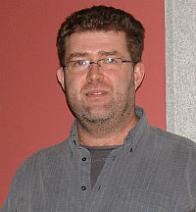12 January 2011
Erasmus Mundus i nadále na PedF UK
For the next five years, the Charles University Faculty of Education will continue to be one of the partner institutions in the Erasmus Mundus programme. It will offer courses in special education to dozens non-EU students in collaboration with London’s Roehampton University and the Norwegian University of Oslo. Assistant professor doc. PhDr. Jan Šiška, Ph.D. is the coordinator of the project.
Since when has the faculty been taking part in this programme?
The faculty joined Erasmus Mundus 6 years ago, when the European Commission launched the first round of the project. Having completed the first five-year cycle, we applied again. Last summer, our application was accepted and now we’re preparing for the second cycle. This time, our partners are London’s Roehampton University and the Norwegian University of Oslo.
|
|
How do you look for potential partners in the project? Most often it is a continuation of previous collaborations. We have been in touch with Roehampton University since the early 1990s. How did you become a part of the project? Six years ago, the Vice-Dean for International Affairs, Mrs. Černá, told me that Roehampton University was looking for partners for the project. Because I had worked on international projects before, I decided to accept the offer. |
What students can take advantage of the programme?
The programme is aimed primarily at applicants from non-EU countries. EU students can also apply, but receive significantly lower scholarships. Previously, quotas were set on how many students from which countries should be accepted. These do not apply anymore.
How many students have studied in Prague under this programme?
In five years, we had 128 students from 49 different countries, including Pakistan, Bhutan, China, the United States, Australia, New Zealand or Mongolia.
What is the schedule of the programme?
During the programme, the students visit all partner institutions, each providing one module, and then there is one joint module. First, the students attend classes together and then they split into three groups and work on their theses at the partner institution of their choice. On top of that, they can visit a non-EU partner institution. This year, these are University of Kwazulu-Natal in South Africa and Universiti Sains Malaysia.
Which language are the classes in?
Each country offers introduction to the local language – we have a course of Czech as a foreign language that contains the basics of language, as well as classes on Czech history and culture. Classes themselves are taught in English.
Who gives the lectures and coordinates the seminars?
Both faculty members and guests from partner universities do. Our Department of Special Education also participates in the joint module that addresses research methodology.
Are the classes theoretical in nature, or are there practical workshops?
These days, special education is crossing the boundaries it was until recently though to be confined to. It focuses on other fields of education, such as lifelong learning, job training or the role of non-profits. Therefore it is essential that all the students are in touch with the people behind the scenes of these activities. They have opportunities to meet people from the organizations that focus on education of handicapped people in many European countries. Practical part of the programme consists of discussions and round tables with experts in the field.
Students in the programme come from very different backgrounds and may have different experiences with care for the handicapped. Do the classes reflect this?
We had to reflect that, because in many of those countries, the handicapped have limited access to education. The physical handicap might not be the only reason; they can also be considered undesirable by the society. Thus we try to include topics of the construction of “being different” as related to the handicapped – we address the ways different societies approach them and highlight the effects of education and social inclusion.
More information about the Erasmus Mundus programme.
(Lucie Kettnerová)
Translation: Jaroslav Švelch

